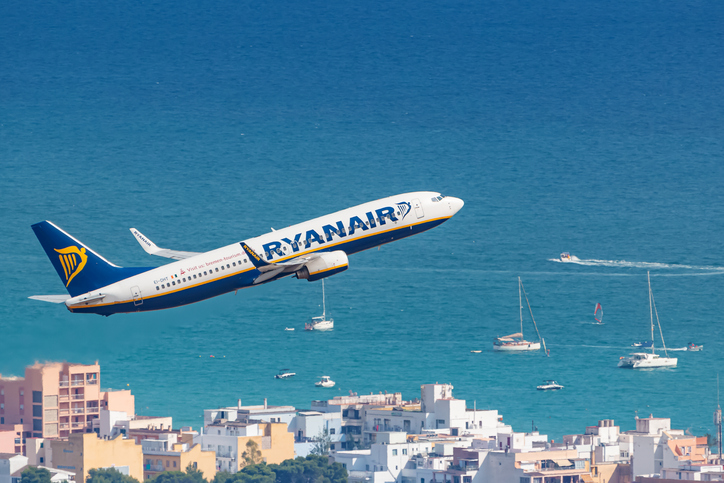ii view: Ryanair passenger numbers dive in August
The low-cost carrier’s shares are down by a fifth in 2020 but continue to outperform most rivals.
2nd September 2020 11:06
by Keith Bowman from interactive investor
The low-cost carrier’s shares are down by a fifth in 2020 but continue to outperform most rivals.

August passenger numbers
ii round-up:
Low-cost airline Ryanair (LSE:RYA) today reported a halving in August passenger numbers compared to last year as the corona crisis continued to overshadow.
Passenger numbers in August totalled 7 million, down 53% on the 14.9 million who flew with the carrier in August 2019. It operated 60% of its normal August schedule, inline with its first quarter guidance back in July, with an average of 73% of the seats filled.
Ryanair shares were little changed in UK trading having fallen by a fifth year-to-date. Shares for rival easyJet (LSE:EZJ) are down by nearly 60% in 2020, while shares for British Airways owner IAG (LSE:IAG) are down by close to 70%.
Rival Wizz Air (LSE:WIZZ) also today reported August passenger numbers. It outlined a 41% drop in travellers year-over-year to 2.38 million. Its shares are down by less than 10% in 2020.
Ryanair passenger numbers in July fell by 70% year-over-year to 4.4 million. Over the last 12 months and including several months when all fights were grounded, passenger numbers have fallen by just under a third to 96.8 million.
In mid-August, and in the wake of a UK government decision to impose quarantine on travellers returning from certain destinations including Spain, Ryanair reduced its flight schedules for September and October by a fifth, following weakened bookings.
Given fears for a second virus spike and the degree of outlook uncertainty, management continues to provide no full-year financial estimates.
Group cash stood at over €3.9 billion at the end of June, enough Morgan Stanley estimated at the time for Ryanair to continue in business for over 16 months, even if its planes were completely grounded.
Management remains hopeful regarding the delivery of its first Boeing (NYSE:BA) MAX-200 aircraft before the end of 2020. The jet was grounded by US authorities following two accidents. It has 4% more seats, 16% lower fuel burn and 40% lower noise emissions compared to its current alternative.
ii view:
Ryanair Holdings is the parent company of Buzz, Lauda, Malta Air & Ryanair itself. It normally carries over 150 million passengers annually on more than 2,400 daily flights from 82 bases. It connects over 200 destinations in 40 countries on a fleet of over 470 aircraft, with further Boeing 737s currently on order.
A series of factors outside of management’s control, such as fuel costs, the weather and strikes can impact both operational and financial performance. Management action to try and combat such factors is a feature across the entire industry. Now, the Covid-19 pandemic has given the airline industry its biggest ever crisis.
For investors, the rapid retreat in August passenger numbers is, at least, better than the fall suffered in July. Swift action to conserve cash and its application to raise £600 million under the Bank of England’s Covid financing scheme have both helped to bolster its balance sheet. But despite a 20% drop in the share price year-to-date, the degree of uncertainty regarding the outlook is still sizeable, with Ryanair shares for now, still only for higher risk investors.
Positives:
- Cash liquidity of over €3.9 billion
- A leading low-cost business model
Negatives:
- Highly uncertain outlook due to Covid-19
- Considers EU assistance to rivals unfair
The average rating of stock market analysts:
Strong buy
These articles are provided for information purposes only. Occasionally, an opinion about whether to buy or sell a specific investment may be provided by third parties. The content is not intended to be a personal recommendation to buy or sell any financial instrument or product, or to adopt any investment strategy as it is not provided based on an assessment of your investing knowledge and experience, your financial situation or your investment objectives. The value of your investments, and the income derived from them, may go down as well as up. You may not get back all the money that you invest. The investments referred to in this article may not be suitable for all investors, and if in doubt, an investor should seek advice from a qualified investment adviser.
Full performance can be found on the company or index summary page on the interactive investor website. Simply click on the company's or index name highlighted in the article.